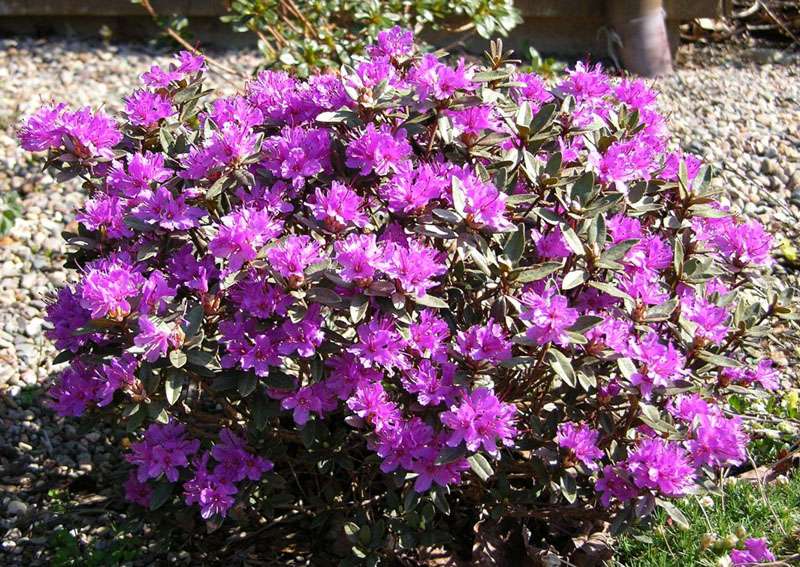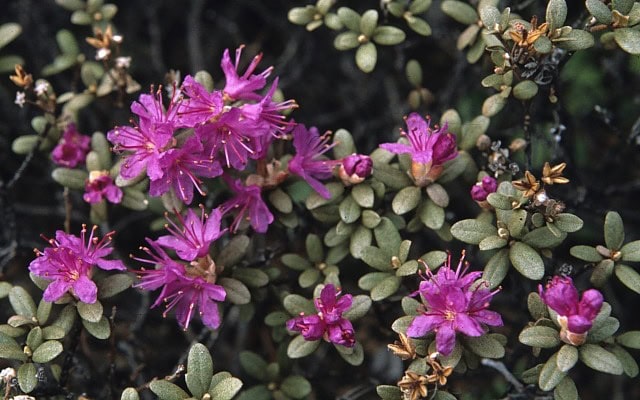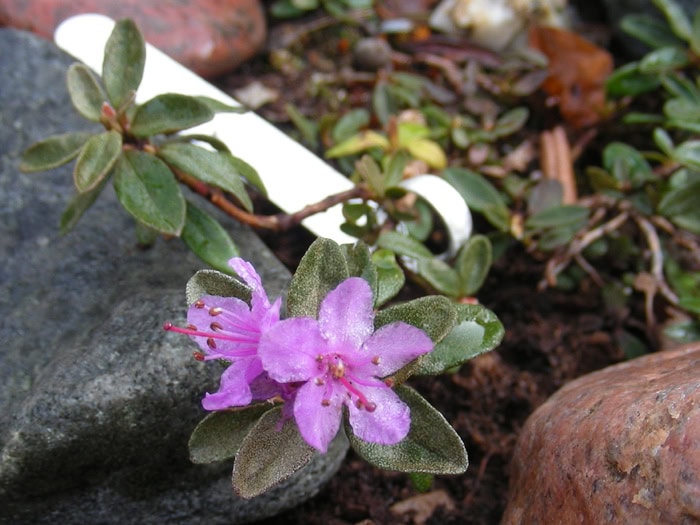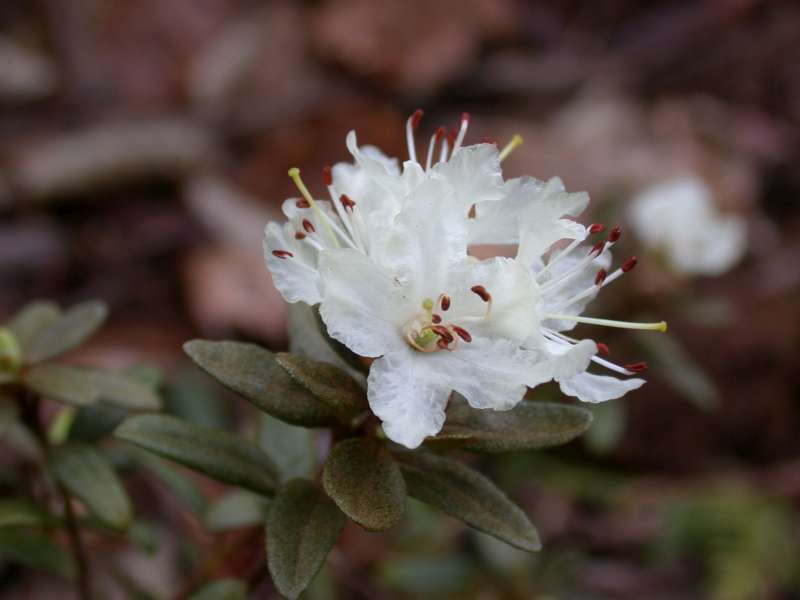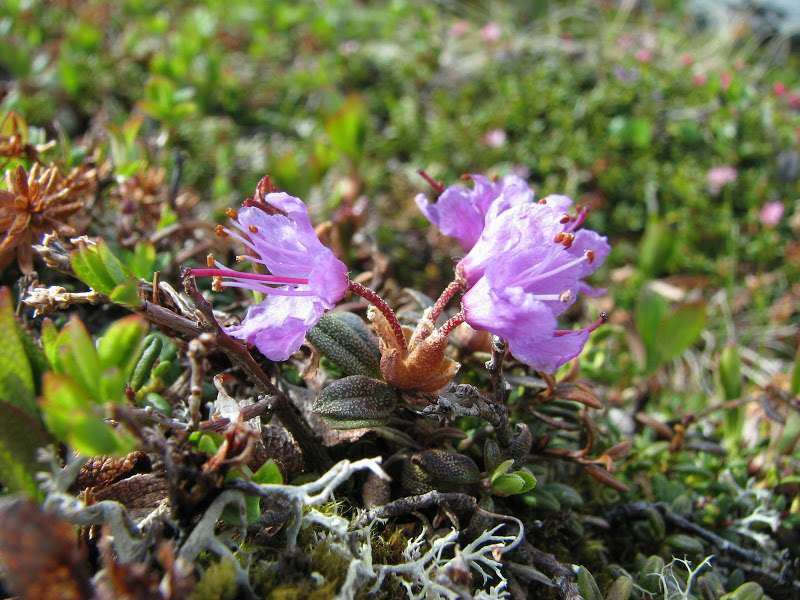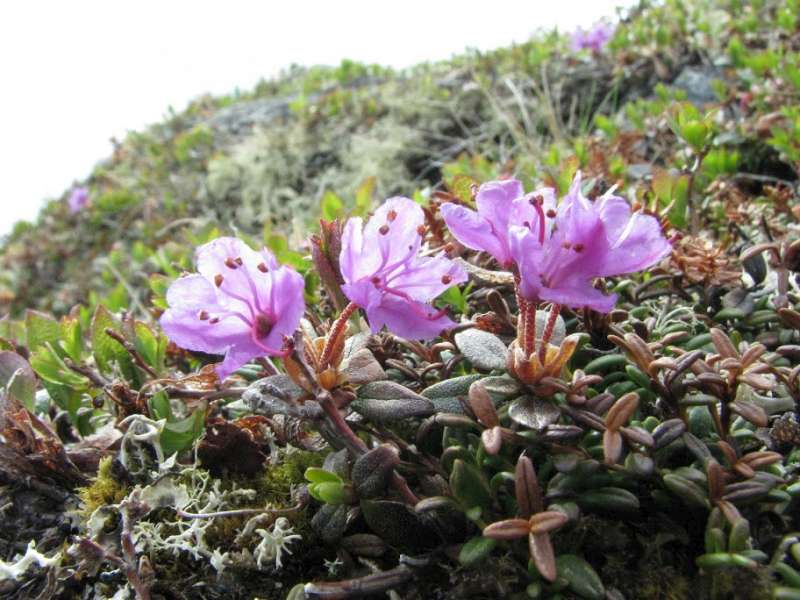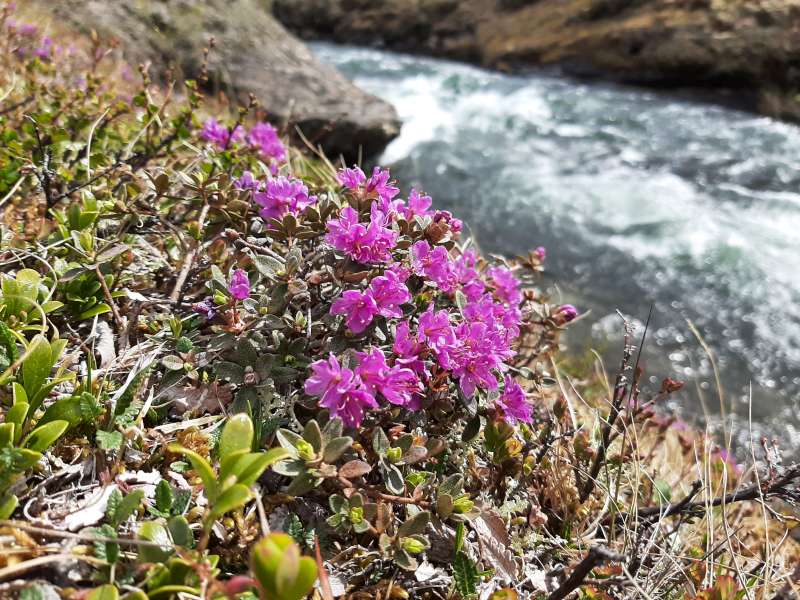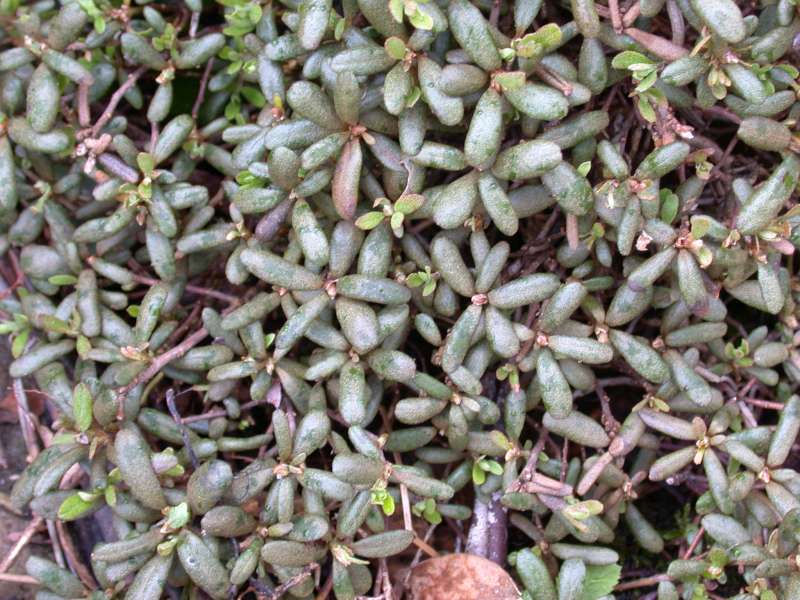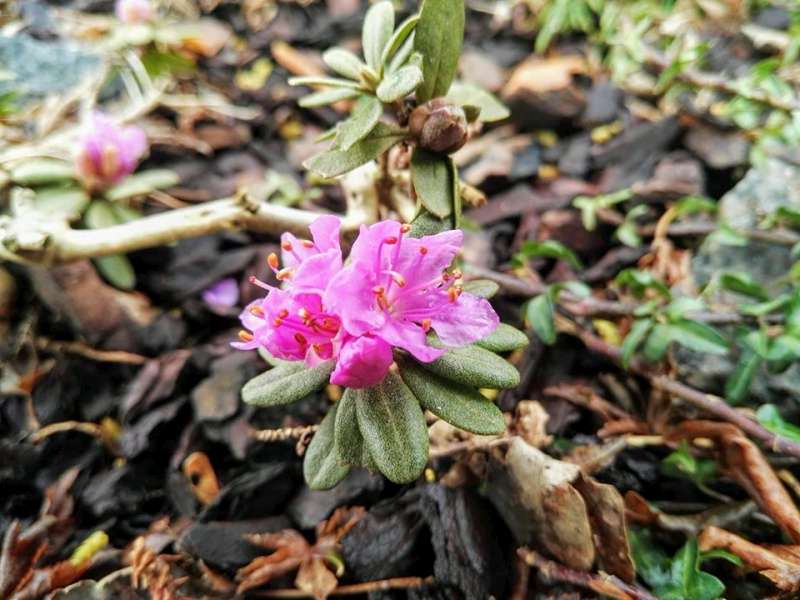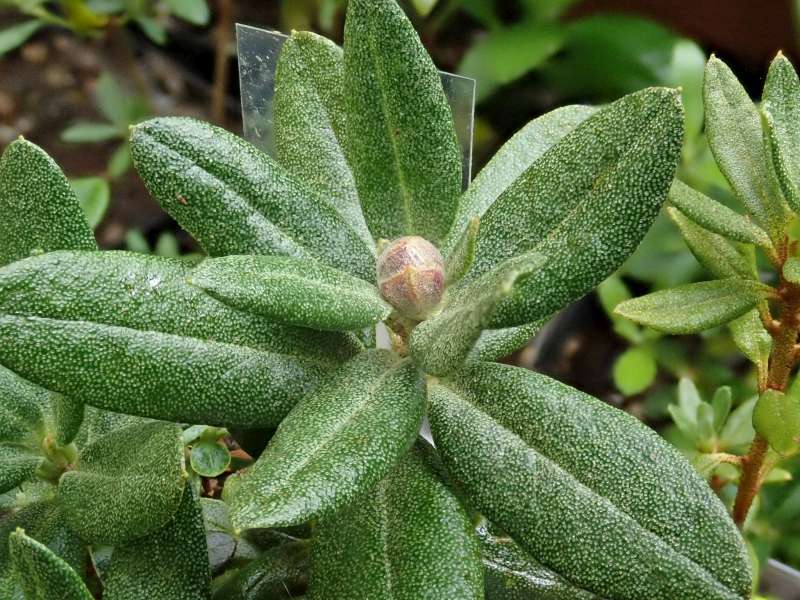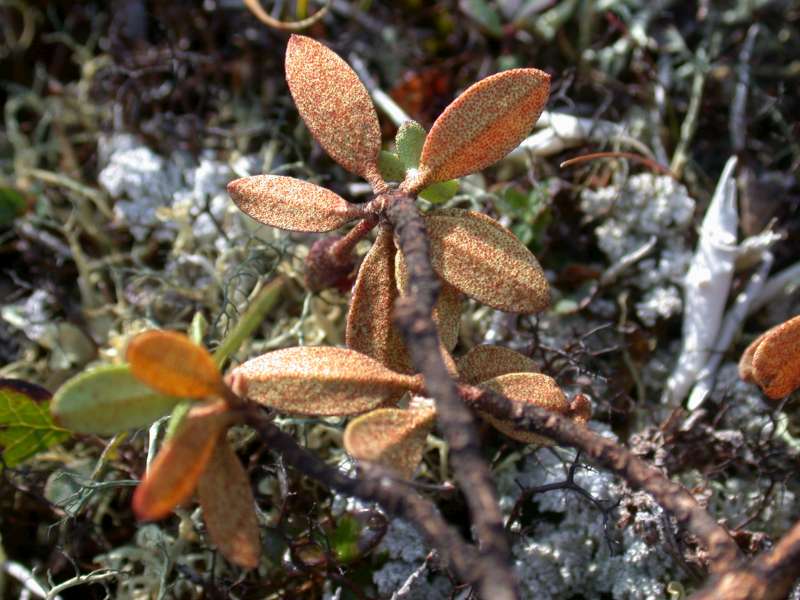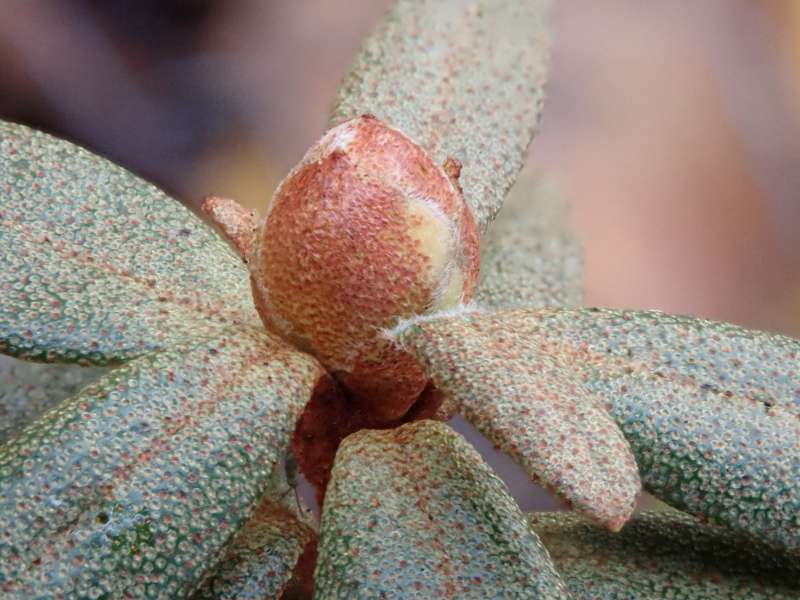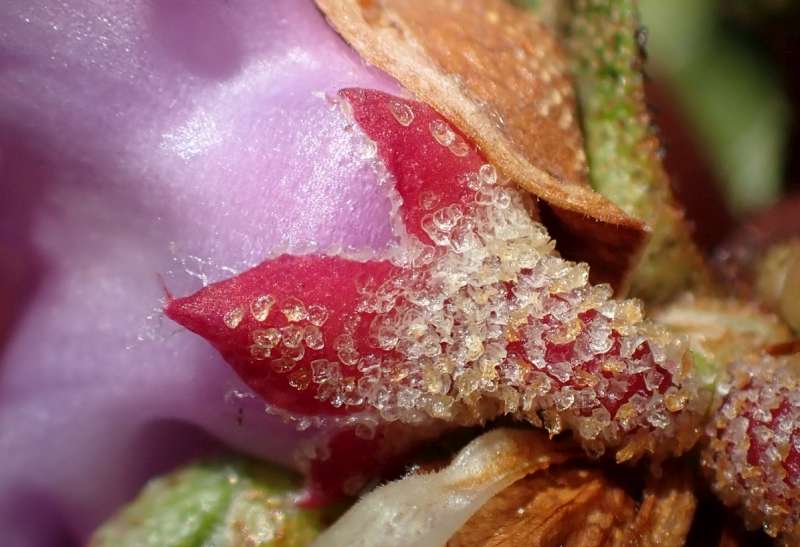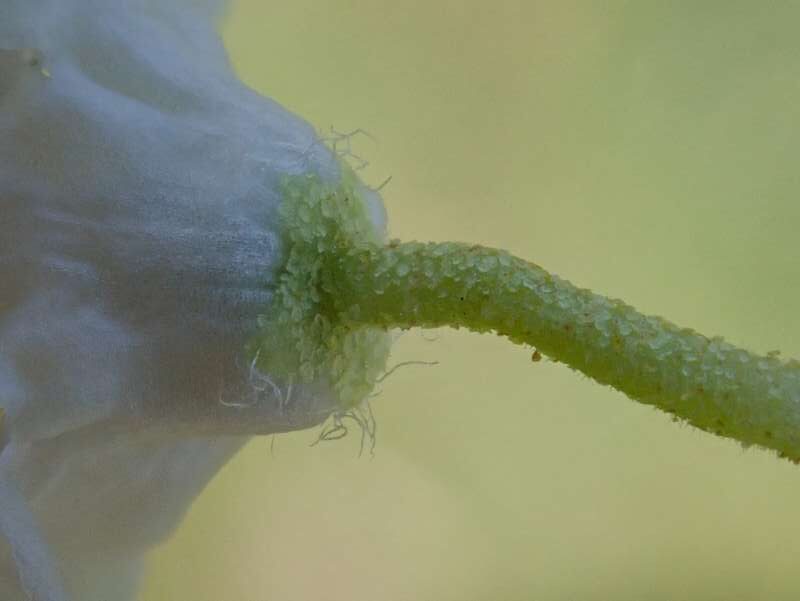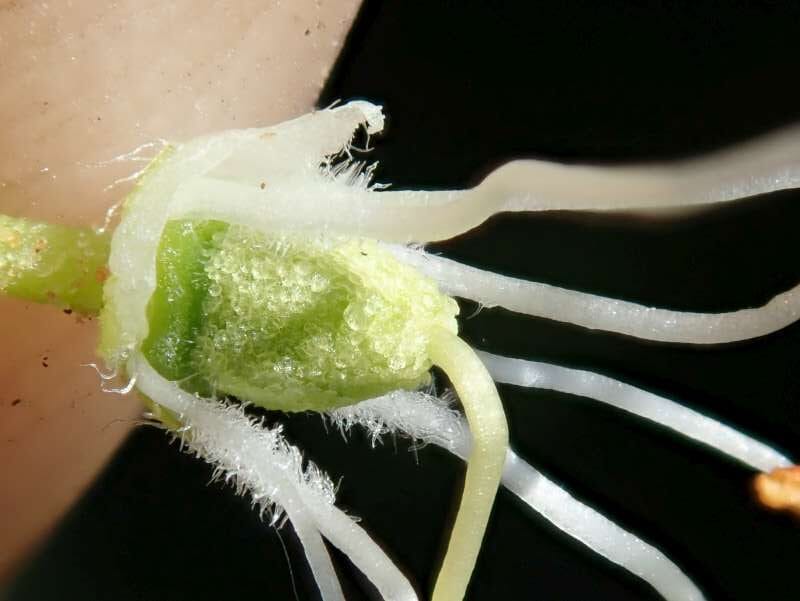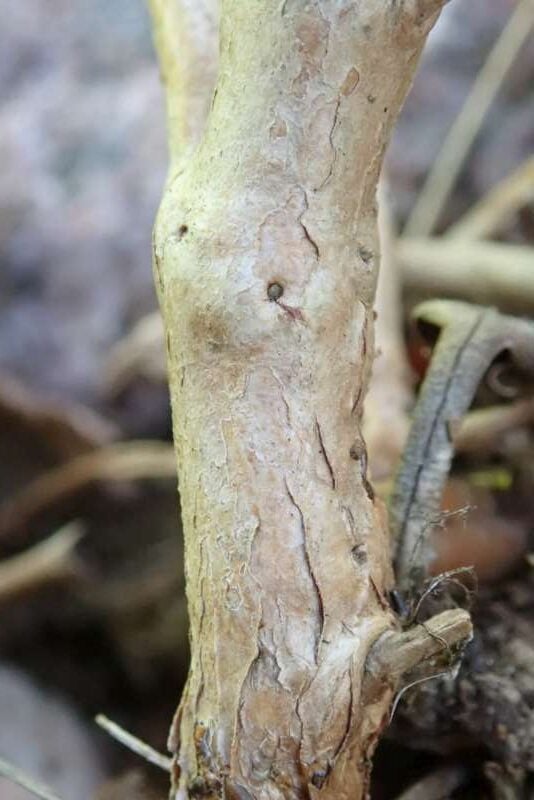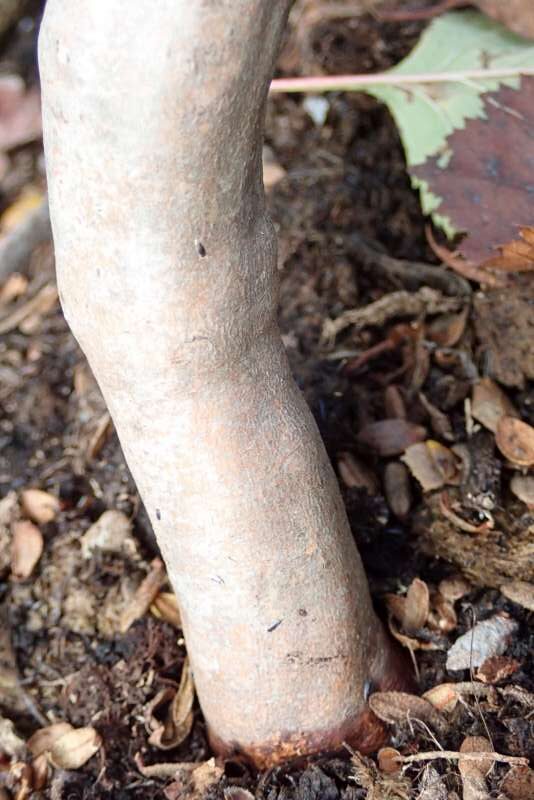Rhododendron lapponicum
Billeder af Rhododendron lapponicum
Beskrivelse
R. lapponicum (Lapponica). Krybende til oprette stedsegrønne buske med bittesmå elliptisk, tæt skællende blade. De små blomster (frostresistente) er lys magenta-rådblå til lilla og meget sjældent hvide og kommer frem i slutningen af vinteren til det meget tidlige forår. Har 5 støvdragere. De fleste former meget vanskeligt om ikke umuligt at dyrke. Parvifolium Gruppen fra kystnære NØ Asien er undtagelsen som har 10 støvdragere. Vildtvoksende på meget forskellige levesteder fra de arktiske regioner i Nordamerika, N Europa, N Asien til N. Japan. Planter (BLWD 68-C) fra Mt. Washington, New Hampshire USA gror hvor der er limsten og er dyrket i USA fra 1960.
Hans Eiberg
R. lapponicum. Samlemappen: login
ARS
Flora of China
Flora of North America
RBGE Herbarium; R. lapponicum
Distribution map, JARS article. 32(3) 1978
Rhododendron lapponicum
By Dick Steele
Our earliest lapponicum came from seed collected on Mt. Washington, New Hampshire, in the early 1960’s . Our selection BLWD 68-C has been with us for 42 years and is of good habit, blooms well and has been very durable. It was used as the pollen parent on a dauricum x carolinianum hybrid. The plants in that cross grew very tall with quite small leaves, surprisingly linear in aspect, suggesting that carolinianum had influenced the height very substantially, and that lapponicum had expressed strong influence in the leaf structure. This seemed odd in this primary cross.
The F2 generation is somewhat lower in stature, the leaves are a bit more variable and some clear light pinks have arisen. The stature in a number of cases is light in structure and because of the fineness of the branches it sometimes appears that the blooms are floating free of the plant.
The F3 generation are showing again the influence of carolinianum; they are thicker stemmed and although quite a number are coming very clear in colour, the majority are showing purples and magenta shades – they are all a fun group to play with.
We have since collected R. lapponicum from quite wide ranging areas in Newfoundland and Labrador where lapponicum has in all cases been found only on limestone sites. We have been very negligent in that although we are always intending to check the pH in the actual root area in which the plant is growing ,we are always so enthralled with the magnificence of the area in which they grow that we forget our responsibilities and just rejoice in the luxuriant freedom of it all. We apologize for this but doubt if we will change.
It is anticipated that a number of these collections will be planted in a protected section of the Rhododendron & Native Plant Society’s Test and Evaluation Site at Lake Centre in 2008.
From AHRS web-site

